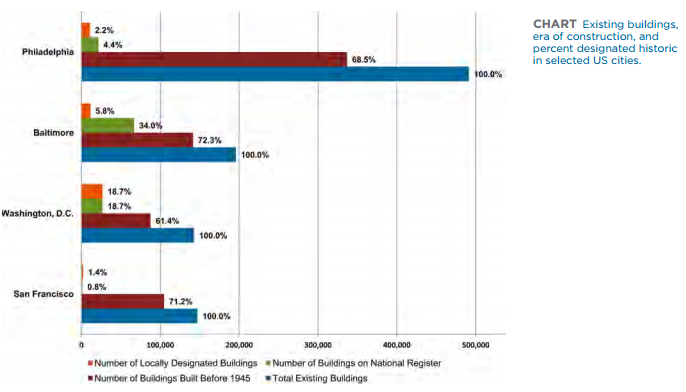Physical Address
304 North Cardinal St.
Dorchester Center, MA 02124
Physical Address
304 North Cardinal St.
Dorchester Center, MA 02124

Historic preservation rules are part of the regulatory framework of most major American cities. But the historic districts in which they are generally applied get little inquiry from economists, meaning little is known about their nationwide scope and economic impact. And even between municipalities they can vary, depending on the precedents set by different circuit courts. Now the Cato Institute, a libertarian Washington think tank, is filing a brief that aims to bring consistency to these laws nationwide. In a 2014 study by the National Bureau of Economic Research, a group of urban economists led by Ed Glaeser found that historic districts in New York City experienced less construction, and affected where in the city developers build. More importantly, the economists found that preservation laws were costliest in neighborhoods where redevelopment would have been most valuable. Another paper, published in 2016 by NYU, to mark the 50th anniversary of New York City’s preservation laws, explored the relationships between historic districts and the type of buildings built, the type of buildings preserved, demographics of the residents in historic districts, and more. The evidence presented in both studies suggests that historic districts do indeed alter the human geography of cities. It validates William Fischel’s observation that “historic districts thus operate as another example of the double-veto system that state land use regulations add to municipal regulation except that in this case the potential veto arrives prior to municipal review rather than afterward” (Zoning Rules!, Page 62). In Nectow v City of Cambridge, the Supreme Court held that Massachusetts violated due process by “arbitrarily and unreasonabl[y]” imposing restrictions on certain land, in a way that did nothing to protect the public (which was the original rationale for land use regulations under the earlier Supreme Court case Euclid v Ambler). That said, the rules about which historic […]